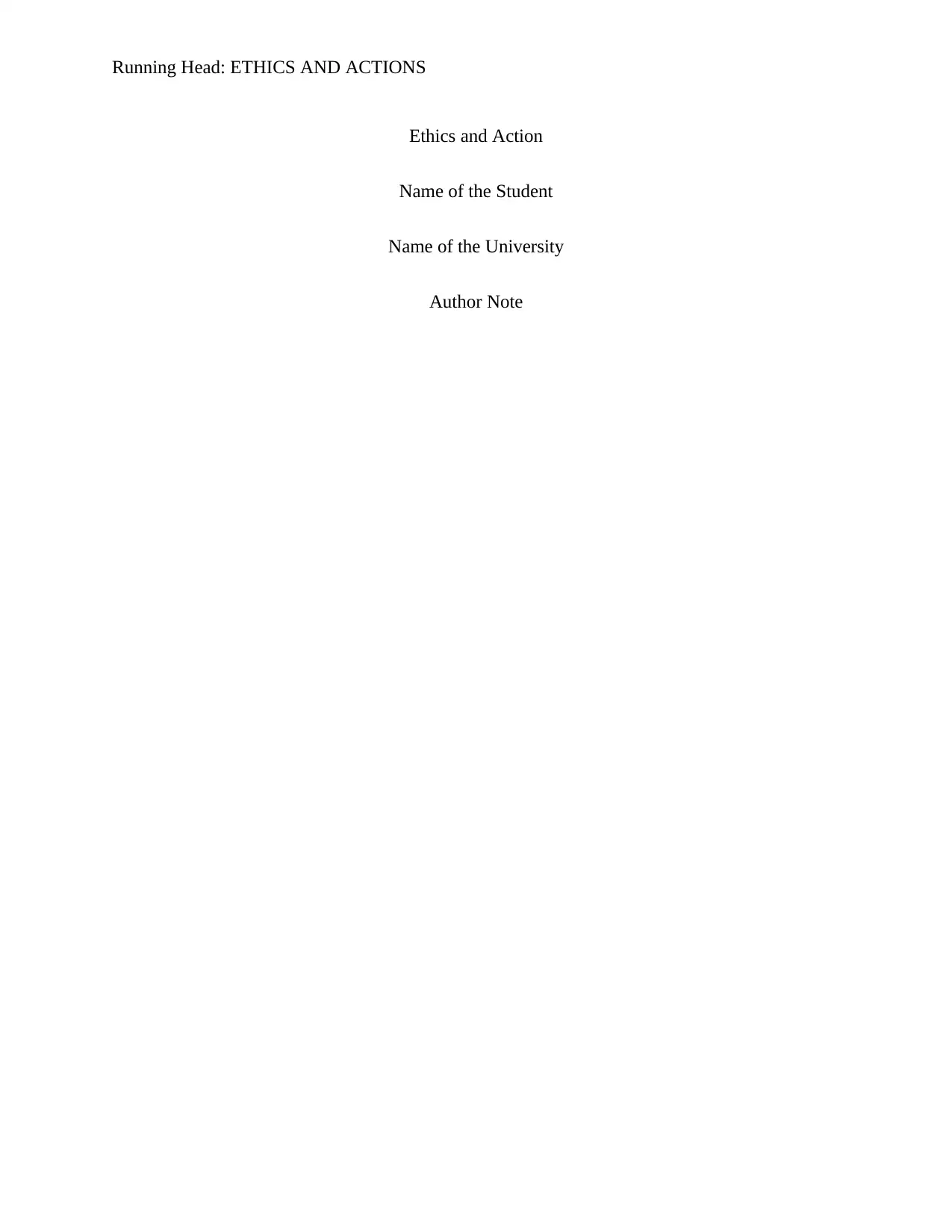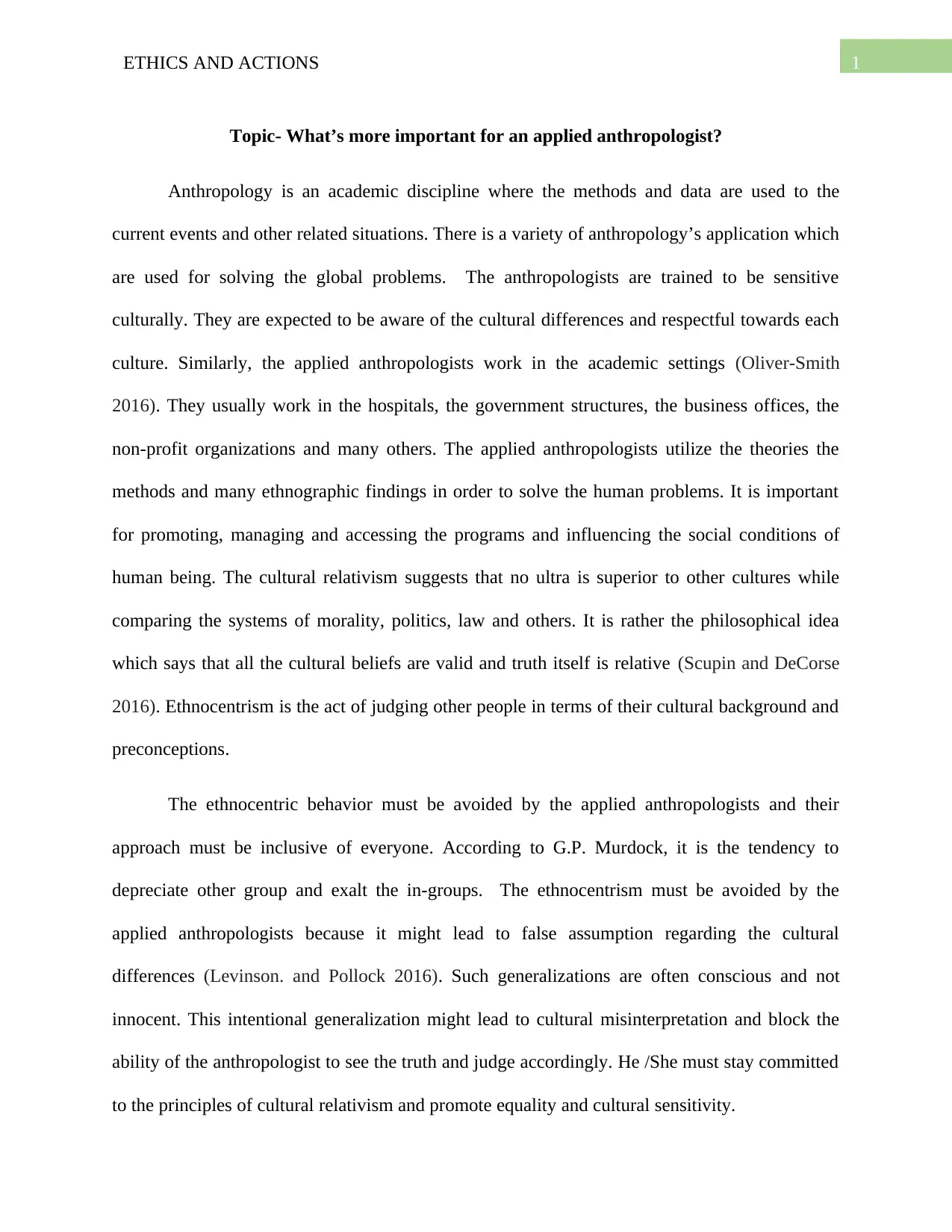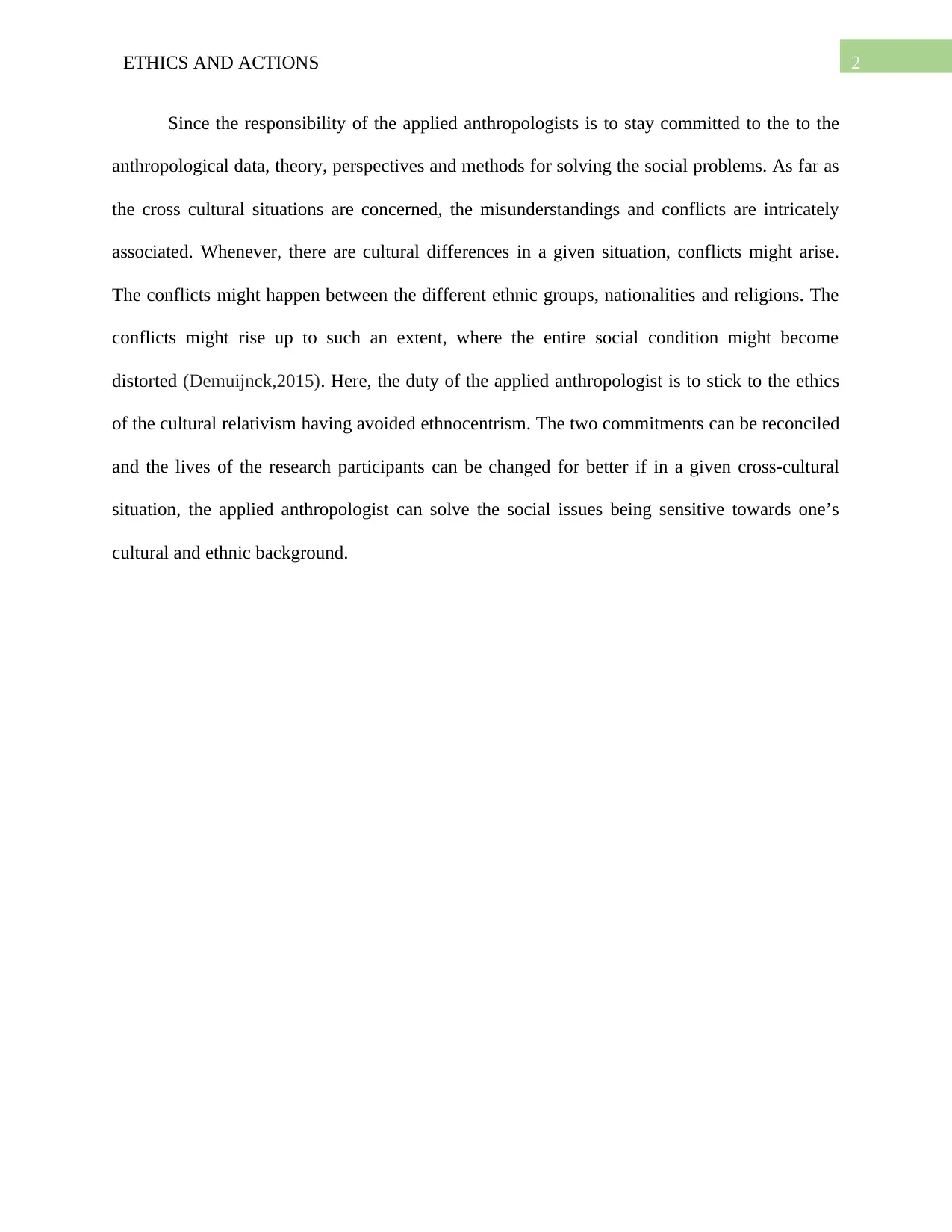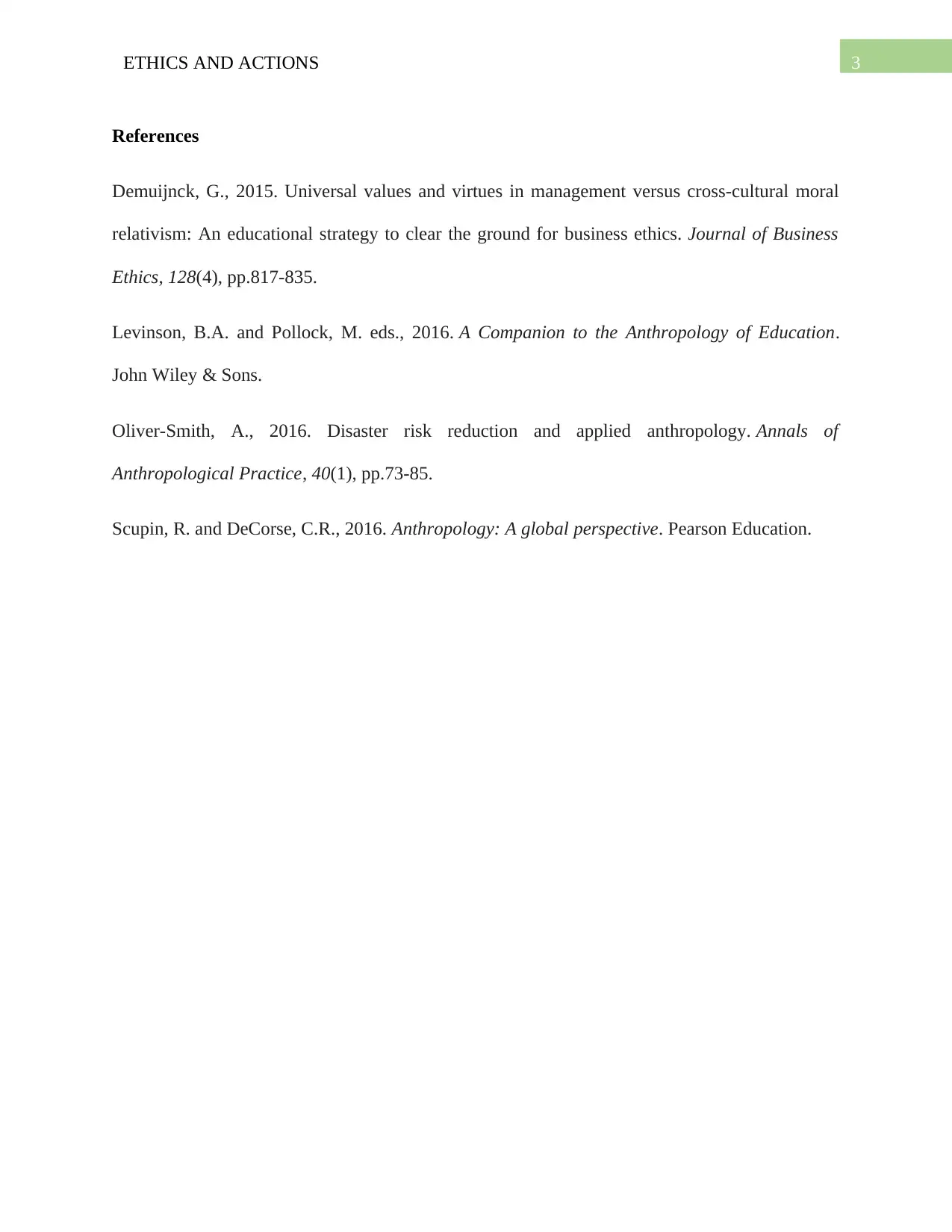ANT2APA Minor Essay: Ethics, Action, and Cultural Relativism Dilemma
VerifiedAdded on 2023/04/17
|4
|548
|102
Essay
AI Summary
This essay addresses the central question of whether applied anthropologists should prioritize a commitment to cultural relativism and avoiding ethnocentrism, or focus on solving problems and improving the lives of research participants. It explores the inherent tensions between these two commitments and discusses the possibility of reconciling them within cross-cultural situations. The essay highlights the importance of cultural sensitivity and ethical considerations in anthropological research, emphasizing the need to balance respect for cultural differences with the desire to address social issues and effect positive change. It also references the potential for misunderstandings and conflicts in cross-cultural settings and underscores the anthropologist's responsibility to adhere to ethical principles while striving to resolve social problems.
1 out of 4











![[object Object]](/_next/static/media/star-bottom.7253800d.svg)